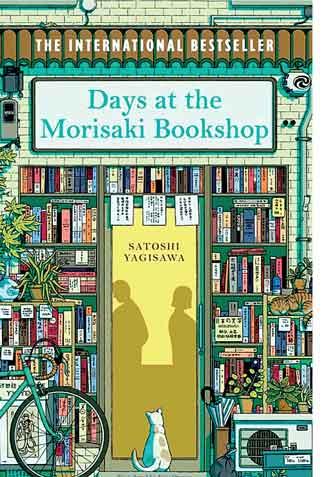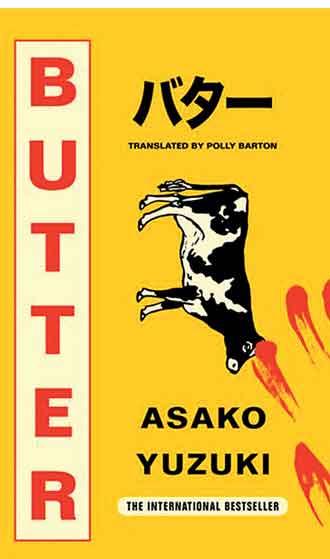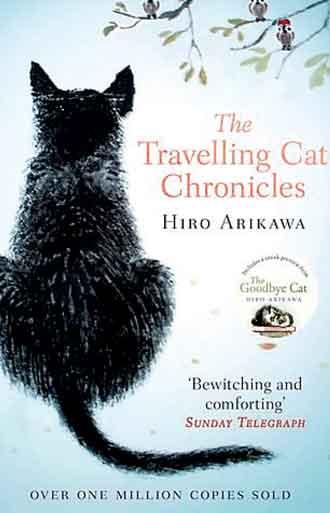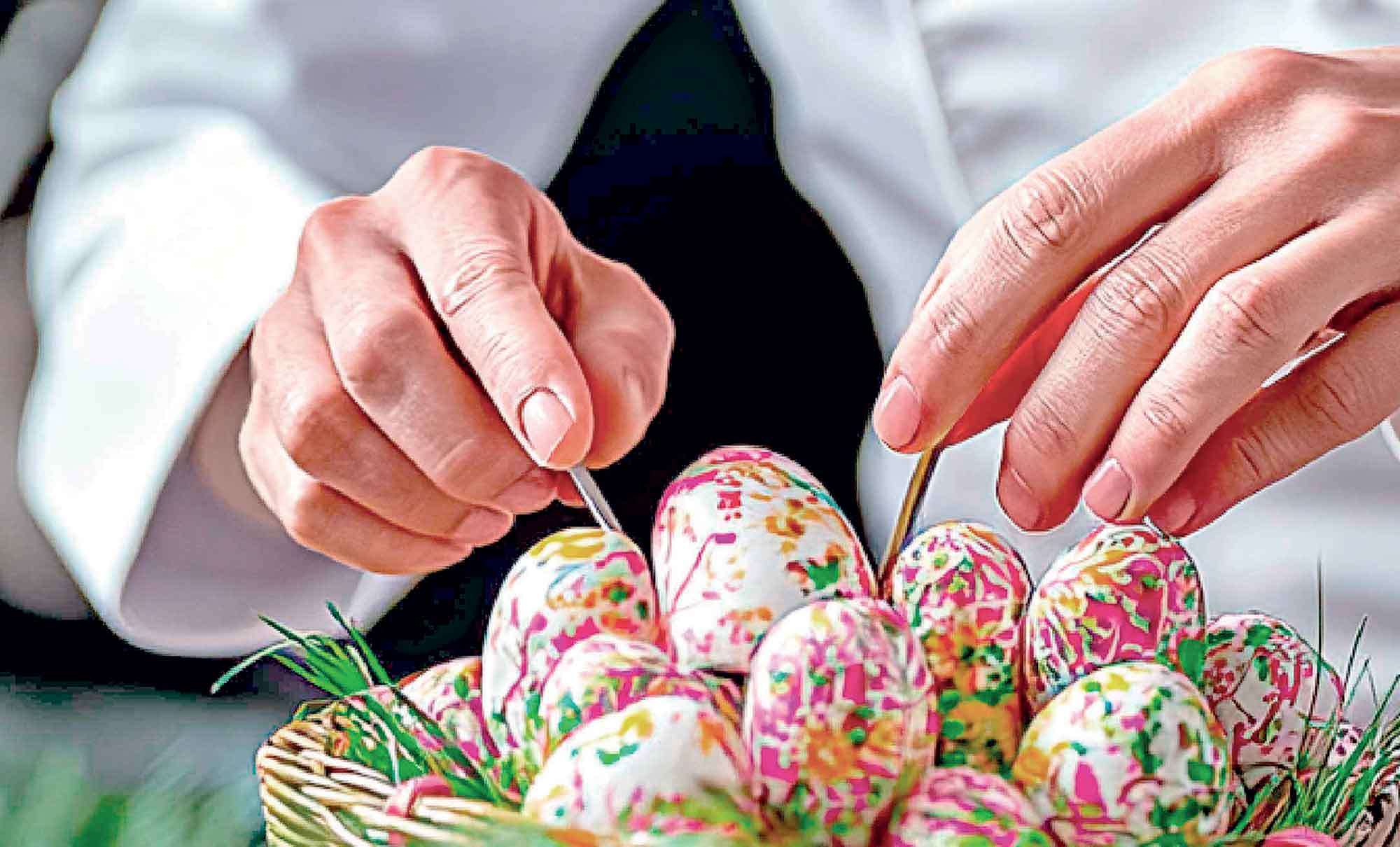 I’ve recently been reading books by Japanese authors, and I loved this glimpse into Japanese culture. It brought to mind the tricky issue of translation; how do you get across jokes and wordplay in a different language? Do the same idioms still work? What about culturally specific practices? It made me realise how brilliant stories rely on brilliant translation, to make their way around the world. Here are three of my favourites.
I’ve recently been reading books by Japanese authors, and I loved this glimpse into Japanese culture. It brought to mind the tricky issue of translation; how do you get across jokes and wordplay in a different language? Do the same idioms still work? What about culturally specific practices? It made me realise how brilliant stories rely on brilliant translation, to make their way around the world. Here are three of my favourites.
Meera Santiapillai
 Days at the Morisaki Bookshop, Satoshi Yagisawa
Days at the Morisaki Bookshop, Satoshi Yagisawa
(Author), Eric Ozawa (Translator)
Twenty-five-year-old Takako has never liked reading, even though the Morisaki Bookshop has been in her family for decades. But after a devastating breakup, her life seemingly falls to pieces. She leaves her job and moves into the little room above the Morisaki Bookshop, now run by her eccentric uncle Satoru.
The shop is filled with hundreds of second-hand books. Takako is just looking for a quiet place to nurse her broken heart, but in a shop filled with hundreds of second-hand books, instead, she finds new worlds opening up to her.
Like most readers, I’m drawn to bookshops and libraries, so a book set in a bookshop, about learning to love reading is the perfect fit. Days at the Morisaki Bookshop perfectly captures the unique magic of the bookshop, the comfort, and the endless possibilities, with humour and sensitivity. It’s a gentle, easy read, about a young woman putting her life back together. Takako’s reading journey is one of the most charming elements of the story – she finds her one gateway book and suddenly she’s addicted.
Most bibliophiles believe in the healing power of reading, and it sure seems to work for Takako. Reading makes her more empathetic and more courageous. She comes out of her shell to make connections with the shop’s quirky customers – as well as her uncle, initially dismissed as an oddball and possibly my favourite character. I’d recommend this sweet tale to anyone looking for a quick, cosy, uplifting read.
Online:
https://www.bonnierbooks.co.uk/books/manilla-press/days-at-the-morisaki-bookshop
 Butter, Asako Yuzuki
Butter, Asako Yuzuki
(Author), Polly Barton (Translator)
Unlike the previous two books, Butter isn’t quite such a cosy read, despite what the title may lead you to believe. Butter tells the story of Manako Kajii, a gourmet cook convicted for the serial murders of lonely businessmen. She is said to have seduced them with her delicious home cooking.
The case was plastered all over Japanese media, but no journalist has been able to score an interview with the mysterious Kajii. That is until journalist Rika Machida tackles the problem from a new angle: she writes to Kajii asking for her beef bourguignon recipe. Unexpectedly, Kajii replies and agrees to let Rika visit her in prison. Through a series of visits and extraordinary culinary experiences, Rika tries to untangle Kajii’s story, but the question remains as to who is controlling the narrative.
The best word to describe this book is “propulsive.” Maybe “addictive” would work as well. It’s certainly not short, at 464 pages, but I tore through it. The book has compelling characters, a deliciously twisty plot and searing insights into misogyny, impossible beauty standards and the contradictory demands placed on women. The writing is a delightful balance between unnervingly poignant and wonderfully weird. It won’t come as a surprise that this thrilling novel was crowned the Waterstones Book of the Year for 2024.
In addition to this, Butter has the most lush, decadent descriptions of food that I’ve ever read. Get ready to crave tarako pasta, French pound cake, and butter ramen, which I’d never heard of before but now desperately want.
Online:
https://harpercollins.co.uk/products/butter-asako-yuzuki?variant=40277730000974
 The Travelling Cat Chronicles,
The Travelling Cat Chronicles,
Hiro Arikawa (Author),
Philip Gabriel (Translator)
This story features a different kind of narrator – Nana, a stray cat and a canny survivor who finds a home with Satoru, a gentle man who loves cats (a different Satoru to the one featured in The Morisaki Bookshop!).
Satoru has suddenly decided to take a road trip to visit three old friends from his school days. Nana isn’t sure why, but he’s just happy to be with his beloved Satoru on this journey.
This book is both uplifting and bittersweet, and the perfect depiction of the bond between pets and their owners. Nana makes for a sparky, vivacious narrator who imbues the story with his sharp wit – a very believable cat voice! The cat narrative is interspersed with more distant third-person perspectives, revealing more about Satoru’s past, before Nana came into the picture.
But there is a creep of unease as you read on – we learn early in the book that Satoru intends to rehome Nana and is meeting his old friends to figure out who Nana gets along with best. Whatever his reasons, the bonds between Satoru and his friends (human and cat!) are tenderly portrayed.
Online:
https://www.penguin.co.uk/books/433929/the-travelling-cat-chronicles-by-arikawa-hiro/9780857524195










